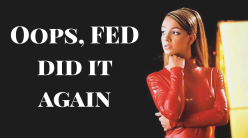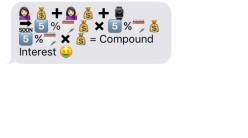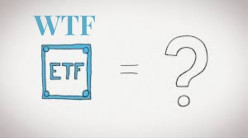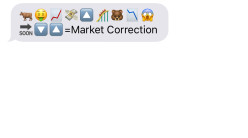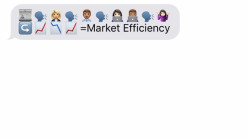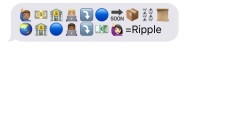1. You pull a Beyoncé and say job “bye”
2. Soon you get a call from HR
3. Asking what you want to do with your 401K
4. You don’t know and think about it
5. You talk to your financial adviser who gives you an idea
6. To do something called a “rollover”
7. You take your 401K money and “roll” it over directly into an IRA account without paying any penalties #loophole
8. You feel blessed because you have control of your retirement
9. What a smart Emoji you are #nerd
10. This all equals Rollover IRA
Let us break this down
One day you decided to quit your job, you drink some lemonade and say job “bye”. Some time passes after you quit and you get a call from HR, and they ask you what you would like to do with your 401K money, you say I don’t know and think about it. You decide to talk to your financial professional who advises you to use this strategy called a Rollover IRA and explain how you can do this without paying taxes. You listen to them and open up an IRA account and have your, 401K money “Rolled” over into your new IRA account. Finally, you feel blessed because you have control of your future retirement, you smart Emoji you!
Why Rollover?
Left Your Job: When you leave your job you are no longer getting the "match" that your employer offers and now you can not directly deposit any money to that 401K, it essentially just sits there. You also can only invest your money in whatever that company offers you to invest in. Now once you do a Rollover IRA account you have control to deposit more money and invest in whatever you and your adviser want to invest in. You take control of your future!
Taking distribution: Once you reach distribution age it is wise to have your 401K rolled over into an IRA, again because you have more control to deposit and withdraw money as well as can change the investment style to fit your lifestyle need, such as focusing on more income yielding instruments.
What is an IRA?
Let's start with the basics. IRA stands for Individual Retirement Account and there are three main types of IRA’s, Traditional, Roth, and Rollover, we will mainly focus on Traditional and Roth as Rollover is the least important in the category until it comes a time where you leave your company or want to make withdrawals.
Traditional: This is the most basic and typical IRA. This is a tax-deferred plan; meaning that all money that goes inside of it is PRE-tax. The downside is if you take any money out before you turn 59 and 1/2 then you will most likely have to pay an additional 10% in penalties along with your regular income tax. *Most likely your company offers and matches this one
*Restrictions
· No contribution after 701/2
· Max $18,500/year (As of 2018)
Roth: Unlike traditional IRA that is tax-deferred, Roth is post-tax, which simply means that all income after tax is contributed to your Roth IRA. But here is what makes a Roth IRA pretty awesome. Any growth inside the Roth is tax-free once you withdraw at your retirement age. Helps you avoid paying higher taxes on growth once you reach retirement, for example, you put $5,000 in today, and in 10 years it is $20,000 when you take it out you pay NOTHING, yes nothing on the appreciation.
*Restrictions
· Ineligible at certain incomes unless employer offers ($120,000)
· Max 5,500/year under 50, $6,500/year over 50
Basically think of an IRA as a 401K account but for when you are not part of a corporation, remember it is wise to roll over your IRA for many reasons once you leave your job and you should consult with a financial professional to help with this process as there are a lot of taxable events that can happen if it is not handled correctly.

